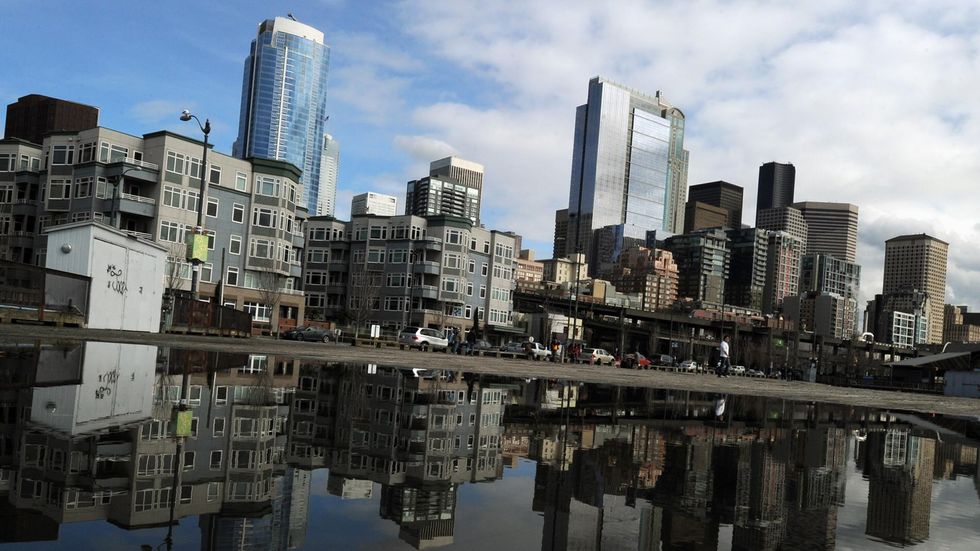
File photo of Seattle skyline. (MARK RALSTON/AFP/Getty Images)

What would happen if a catastrophic earthquake hit Seattle? That was the question examined by a 722-page, $900,000 study.
What would happen if a catastrophic earthquake hit Seattle? That was the question examined by a 722-page, $900,000 study commissioned by Seattle Public Utilities.
Only 13-page summary of the report was publicly released.
The utility's water planning director told the Seattle Times parts of the report contain information about vulnerable points in the water system. In response to additional questions from the news outlet, a utility spokeswoman said the U.S. Department of Homeland Security would need to determine if certain portions of the study could be released.
One finding is that if a catastrophic earthquake happened, Seattle could lose all water pressure within 24 hours. The damage could be so great that all water would drain from the pipes after the ground stopped shaking, according to the report.
Fully restoring the service would take at least two months, the Seattle Times reported.
The study was revealed after powerful earthquake hit Anchorage, Alaska, causing widespread damage on Friday.
Seattle faces a 15-to-20 percent chance of a severe earthquake over the next 50 years, according to the report.
In all, the city needs to spend “$850 million through 2075" to reduce potential risks to the water system. Seattle is essentially “playing catch-up to California cities that already have taken dramatic steps," the Seattle Times reported.
“For this very catastrophic earthquake, we're looking at very significant impacts," Alex Chen, SPU's water-planning director, told the newspaper.
The utility provides drinking water to 1.4 million people.
Seattle's worst-case scenario could potentially be worse that Anchorage's magnitude 7 earthquake, the report states. That's because Anchorage's earthquake happened 25 miles underground. Still, it buckled roads, knocked out power and broke hundreds of gas lines as well as water pipes across the city.
Train service was stopped after broken pipes caused flooding at the Alaska Railroad Operations Center. The Anchorage water utility also advised all residents to boil water as a precaution.
Scott Miles, a University of Washington disaster risk-reduction expert told the Seattle Times that repair cost estimates in the SPU report could be low.
He also said the “real disruption would be water service getting knocked out by a quake."